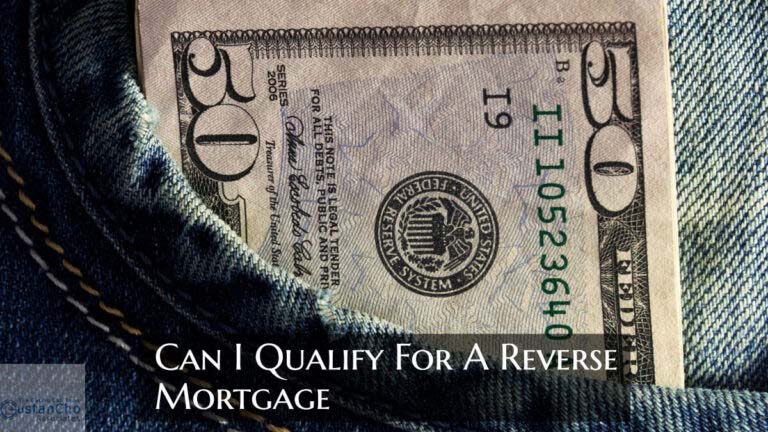Benefits Reverse Mortgage For Senior Homeowners
An FHA reverse mortgage is a refinance mortgage loan where the lender does not consider income, credit, or liabilities of borrowers. There are many benefits reverse mortgage.
- The only concern the lender has is the equity in the home
- The borrower can have the following and still qualify for reverse mortgages:
- bad credit
- bankruptcy
- foreclosure
- late payments
- credit scores below 500
- Borrowers can have all of the above and still qualify for reverse mortgage
- Borrowers need to be at least 62 years old or older
In this article, we will cover and discuss the Benefits Reverse Mortgage For Senior Homeowners.
What Are Reverse Mortgages
A reverse mortgage is a cash-out refinance mortgage loan where the borrowers gets either a lump sum of cash or a line of credit:
- Not every homeowner who is 62 years old or older can qualify for reverse mortgages
- For example, a 62 year old homeowner who owns a $100,000 home with a mortgage of $95,000 would not qualify for a reverse mortgage due to not having enough equity in their home
- However, a 62 year old homeowner who owns a $100,000 home but has no balance will qualify for reverse mortgages
- A homeowner does not need to have their home free and clear of a mortgage
- They can still have a mortgage balance but needs to have substantial equity
- For seniors who are 62 years old or older who are interested to see if they qualify for reverse mortgages can contact The Gustan Cho Team for a free consultation to see whether or not they qualify for a reverse mortgages
- We can see if they qualify and benefits reverse mortgage
Benefits Reverse Mortgage In Need Of Cash
There are many benefits reverse mortgage for seniors.
- Most senior homeowners who retired may have exhausted their lifelong savings
- Or may be on fixed income with no savings
- They may have a home that is free and clear of a mortgage
- But homeowners are still responsible to pay their property taxes and insurance
- Being a homeowner comes with financial liabilities
- A senior homeowner may need unexpected funds for major housing repairs such as the following:
- a new roof
- new plumbing
- updating electrical
- HVAC systems
- Or their fixed income may not be enough for them to pay day to day living expenses
- Senior homeowners may have a difficult time to do a cash-out refinance mortgage on their current home
- Qualified income is required on home refinances even though a homeowner may have a lot of equity
- Due to not being able to qualify since they have no income or very little income no matter how much equity they have in their home, doing a traditional cash-out refinance mortgage may be an issue
Importance Of Equity In Qualifying For Reverse Mortgages
With a reverse mortgage, it is possible for a senior homeowners with equity in their homes to get a cash-out refinance with no income and bad credit:
- A reverse mortgage is a loan program by HUD, the parent of FHA, where it is a cash-out refinance mortgage loan for those seniors who are 62 years old or older
- Proceeds of the cash-out refinance can be distributed as either a lump sum of cash or a line of credit
- Homeowners never have to ever make a mortgage payment again until the house is sold or the homeowner passes
- However, borrowers are responsible of making their annual property tax payments and homeowners insurance payments as long as the reverse mortgage refinance loan is in effect
- Reverse Mortgage Borrowers needs to be an owner occupant and cannot rent out their home
How Do Reverse Mortgage Work?

A reverse mortgage allows an owner occupant homeowner who is at least 62 years old or older to borrow against the equity of their home.
- Traditional mortgage loans require borrowers make principal and interest payments every month to their lender every month
- However, with a reverse mortgage, no mortgage payments need to be paid
- There are several ways a reverse mortgage lender makes payments to the borrower
- The reverse mortgage lender can pay a one time lump sum
- The reverse mortgage lender can make a fixed monthly amount to borrowers for as long as the homeowner owns and occupies their home
- The reverse mortgage lender offers a line of credit
- Or the last option, where the reverse mortgage lender offers the combination of the above options where they offer a partial sum, monthly payments, and line of credit
Reverse Mortgage Eligibility Requirements
As mentioned earlier, a homeowner needs to be at least 62 years old and have substantial equity in their home.
- If the current home has a mortgage, the current mortgage needs to be paid off from the proceeds of the reverse mortgage loan
- The borrower’s credit, income, and liabilities does not matter
- Areverse mortgage loan borrower can be late on their existing mortgage loan or have derogatory credit as long as they have sufficient equity in their home
- The older the homeowner is, the more they can borrow
- The home cannot be currently listed on the MLS and an appraisal is required
- The reverse mortgage borrower needs to intend on occupying the subject property as their primary residence
If they ever decide to rent the home or not be an owner-occupant, they are in violation of their reverse mortgage loan agreement.
Paying Off Reverse Mortgages
Homeowners can sell their home and pay the outstanding balance of their reverse mortgage:
- How reverse mortgage work is the lender advances the homeowner a set amount of money
- Then the original loan balance increases every month, principal and interest payments
- There is no expiration date with a reverse mortgage
- If a 62-year-old reverse mortgage borrower lives to be over 100 years old, the borrower still does not need to pay a single mortgage payment
- The mortgage balance can exceed the future appraise value and the borrower still is not liable and under no obligations to pay the reverse mortgage balance and/or payments
Again, the reverse mortgage loan borrower is responsible to pay property taxes, homeowners insurance, and homeowner association dues if applicable.
Are There Any Upfront Costs For Reverse Mortgage Refinance Loans?
There are costs associated with reverse mortgage refinance loans. All fees and costs can be included and rolled into the balance of the reverse mortgage loan. The only upfront cost that a reverse mortgage loan borrower is responsible for is the appraisal fee.
The costs and fees associated with a reverse mortgage loan are the following:
- FHA mortgage insurance premiums
- origination fees
- service fees if the reverse mortgage loan borrower selects to get a monthly guarantee payment
- typical closing costs
- pre-paid
- title charges
- recording fees
- credit report fees
Interest rates for reverse mortgages are normally higher than traditional FHA mortgage loan programs. Reverse mortgage loan applicants need to complete a HUD-approved counseling course in order to proceed with the reverse mortgage application process. There are many benefits reverse mortgage for seniors who have ample equity in their home but are struggling financially due to having very little income or no income.



